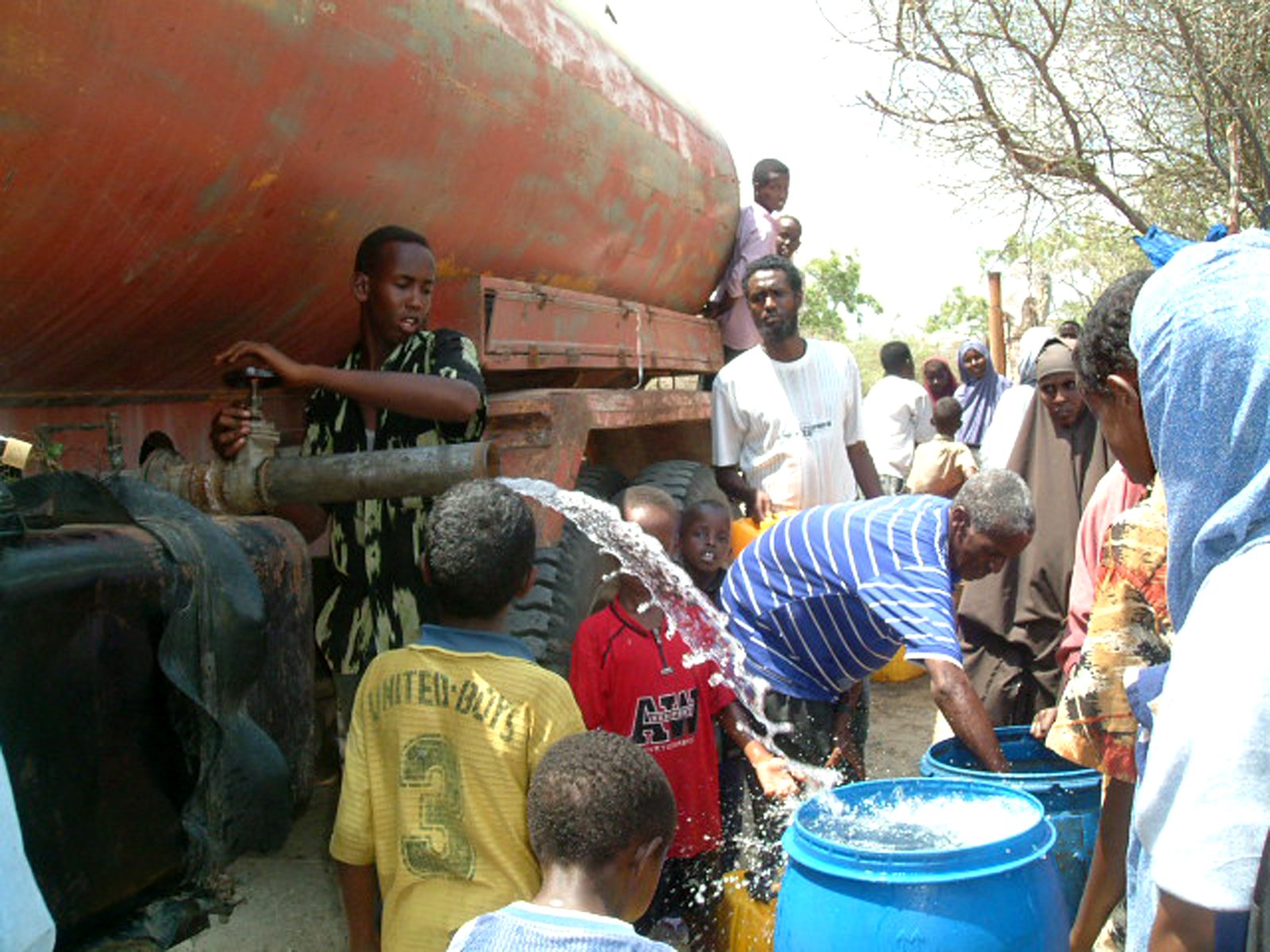"The international community and Somalis need to ensure peace and stability in the country to enable the provision of adequate supplies of clean drinking water for more children and women," Christian Balslev-Olesen, UNICEF’s Somalia Representative, said in a statement issued on 20 March, to mark World Water Day on 22 March.
"While financial and technical resources could be available to ensure supplies, insecurity hinders the effort," Balslev-Olesen said.
"Water has to be more than a pipe dream for Somalis; it has to be part of the reality.”
Ahmed Dini of Peaceline, a Somali civil society group, told IRIN on 24 March: "Water in Somalia is a luxury very few people can afford. In some instances, people walk 10-15km, sometimes in a very unsafe environment, to get water."
Dini said worst-affected were the thousands of displaced across the country.
"Many IDPs [internally displaced persons] flee to areas with little or no water availability," he said, adding that the problem was compounded by the fact that aid agencies who want to help “cannot access those in need due to lack of security".
Even when available, the cost of water has become so steep that few, if any, can afford it, Tahalil Aden, a resident of Ada Kibir, 770km northeast of Mogadishu, told IRIN.
He said a 200-litre drum of water cost at least 200,000 Somali shillings (US$7). "Not many people in this town can afford it, so they send children to collect water from as far as 20km away.
UNICEF said one of the effects of a lack of access to water and sanitation services was a "high rate of water-related diseases, such as diarrhoea [including cholera], which accounts for about 20 percent of Somalia's under-five mortality”.
UNICEF and other agencies have been supporting the water sector in rural and urban areas by maintaining facilities; constructing and rehabilitating water and sanitation systems; and training communities to sustain these systems.
"World Water Days should give Somali children and women a chance to celebrate gains in access," Zaid Jurji, UNICEF Somalia's chief of water, sanitation and hygiene, said.
ah/mw
This article was produced by IRIN News while it was part of the United Nations Office for the Coordination of Humanitarian Affairs. Please send queries on copyright or liability to the UN. For more information: https://shop.un.org/rights-permissions





